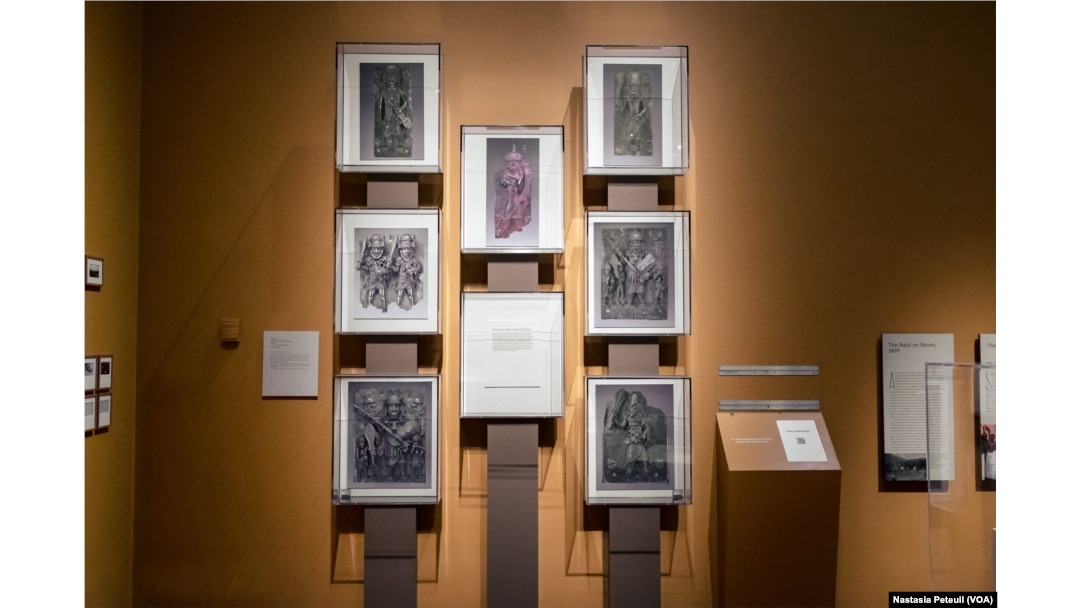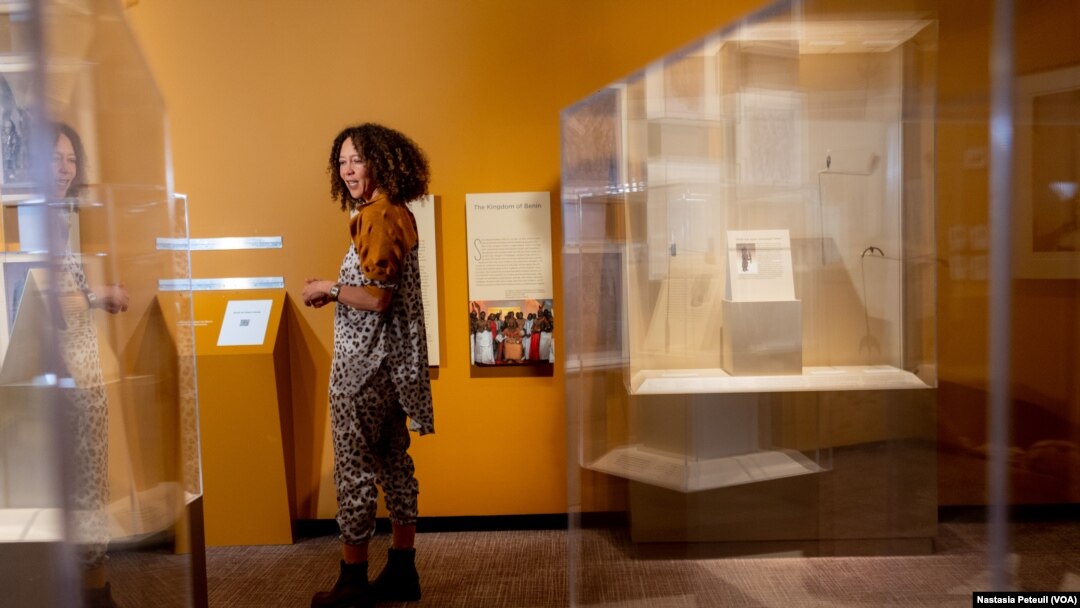WASHINGTON — For several months, photographs of Benin Bronze have covered a wall at the Museum of African Art in Washington instead of pieces of art. Next to it, other photographs show the same works of art: bronze statues from the kingdom of Benin, the current state of Edo, in Nigeria.
The new director of the museum, South African Ngaire Blankenberg, told VOA that she was uncomfortable with the idea of exhibiting objects from looting. As soon as she arrived, she asked her staff to remove the art and replace it with explanatory panels while they found something else to display.
After months of discussion, the restitution is now final. On Tuesday, the museum, which is part of the Smithsonian Institution, the educational and cultural organization that is in Washington, DC, announced that it had handed over 29 bronze works of art to the Nigerian authorities. The restitution was made official at a ceremony attended by Lai Mohammed, the Nigerian Minister of Information and Culture; Prince Aghatise Erediauwa, representing the Oba, or ruler, of the Kingdom of Benin; Mrs. Blankenberg; and representatives of the National Gallery of Art.
“Not only was returning ownership of these magnificent artifacts to their rightful home the right thing to do, but it also demonstrates how we all benefit from cultural institutions’ making ethical choices,” said Lonnie Bunch, Secretary of the Smithsonian, in a press release.

Photographs of objects removed from the Museum of African Art, taken during an interview with the director, at the Museum of African Art, April 6, 2022. (VOA/Nastasia Peteuil)
For Nigerian authorities, there is a feeling of satisfaction. “Nigeria is immensely gratified at the commendable decision of the Smithsonian’s National Museum of African Art, the National Gallery of Art, and the Rhode Island School of Design to return these artifacts that left Africa over a century ago,” Mohammed said in a press release.
“Nigeria looks forward to working with these institutions on joint exhibitions and other educational exchanges. By returning the artifacts, these institutions are together writing a new page in history. Their brave decision to return the timeless artworks is worth emulating” added the spokesperson.
A Woman's Initiative
Your browser doesn’t support HTML5
Washington Museum Director: 'I'm Very Sensitive to This Issue'
“I wanted to remove the work from Benin City because it hurts me. When people from the diaspora go to museums, they see objects that shouldn’t be there,” explained Ms. Blankenberg, adding that “it's a kind of violence, and it hurts physically and mentally.”
To begin the lengthy restitution process, Ngaire Blankenberg contacted Abba Isa Tijani, the Chairman of the Museums and Monuments Commission of Nigeria, to move the restitution process forward. Since the Smithsonian Museum is an agency of the US federal government, the new director had to push through a new policy to allow the return of art objects to Nigeria.
Ngaire Blankenberg, director of the Museum of African Art, April 6, 2022. (VOA/Nastasia Peteuil)
The restitution recorded on Tuesday is the very first of its kind. So far, no entity of the Smithsonian has undertaken to return to Africa any object of art looted during the colonial era. It took the intervention of Ngaire Blankenberg to get things moving in the 176-year-old institution.
“If I want to create a space for Africans and their descendants, and not just Europeans, it’s important that objects that shouldn't be there aren’t there,” she said.
What does she think of European museums that oppose restitution? “There are many excuses for not returning objects, and one of the excuses is that African museums are not ready to receive them, but it is not for us to judge,” she said. “The big question is who decides the terms. It is quite common in museums in the West to decide how we should display these objects. It is not for us to decide,” she said.
The Museum of African Art, taken during an interview with the director, at the Museum of African Art, April 6, 2022. (VOA/Nastasia Peteuil)
Beyond the question of restitution, the soft power of museums is also at stake, according to her.
“It's very important for our strategy: we have to abandon colonial constraints to achieve a relationship of equals, but we can’t do that as long as we have objects that aren't ours,” she concluded.


